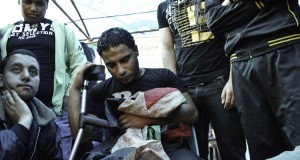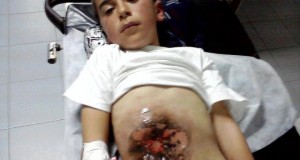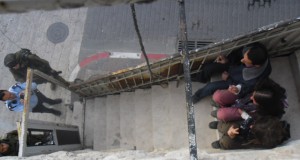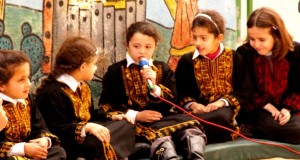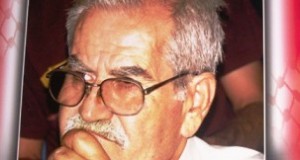by Lydia 3 April 2012 | International Solidarity Movement, West Bank Essam Amer Ghassal,16 Khaled Beal Harabi, 22, Yousef Beal Harabi, 23: Three more names to be added to the political prisoner list, two more mothers to carry framed pictures ...
Read More »Author Archives: Yara
Israeli soldiers arrest 20 in a pre-dawn raid on Kufr Qaddoum
by Abir Kopty 5 April 2012 | Popular Struggle Coordination Committee During the raid, soldiers pillaged jewelry and caused extensive damage to houses. Residents are certain that arrests were made to quash regular protests in the village Massive numbers of ...
Read More »Neither threats nor murders will stop our demonstrations
by Nathan Stuckey 4 April 2012 | International Solidarity Movement, Gaza Over the weekend Israeli planes dropped flyers over Beit Hanoun and Beit Lahia warning that anyone who approached within three hundred meters of the border would be shot. It ...
Read More »Video: Israeli military shooting directly at press in Kufr Qaddoum
by Axel 4 April 2012 | International Solidarity Movement, West Bank On Friday the 30th of March the weekly demonstration was held in the village Kufr Qaddoum outside of Nablus. This day was however the same day as the Global ...
Read More »They shoot the youth don’t they?
by Johnny Bravo 4 April 2012 | International Solidarity Movement, Gaza On March 30, 1976, the Palestinian people declared a general strike and demonstrated against the Israeli confiscation of thousands of acres of land in the Galilee. The Israeli’s responded ...
Read More »Video: Israelis violently attack Palestinians in Al Khalil home invasion
2 April 2012 | Youth Against Settlements About 30 Palestinians and international ISM activists from Canada, Finland, United States and the Netherlands entered a Palestinian house that was taken over by Israeli army around eight years ago. The re-occupation of ...
Read More »Qaryut: 8 year old injured by bomb planted by Israelis
by Lydia 2 April 2012 | International Solidarity Movement, West Bank Yemams father did not have time to respond to his son before the bomb exploded. Ripping through three layers of clothes and even more layers of skin, his father ...
Read More »Israeli Brutality: Violent arrests of Palestinians in Hebron and disappearance of Dutch volunteer
by Paige and Satu 1 April 2012 | International Solidarity Movement, West Bank A Dutch woman and several Palestinians were violently arrested today during an attempt to reclaim a Palestinian house at the entrance of the old city in occupied ...
Read More »Land Day commemoration in Al Huda School, Khan Yunis
by Nathan Stuckey 1 April 2012 | International Solidarity Movement, Gaza Al Huda School is a small, private primary school in Khan Yunis. It serves about 400 students, a quarter of them orphans. The school isn’t in the center of ...
Read More »Extension of administrative detention of Dr. Yousef Abdul Haq for the second time
31 March 2012 | Tanwer Human beings are born free, but we are surrounded by restrictions everywhere Jean-Jacques Rousseau Today on the thirty-sixth anniversary of the Palestinian Land Day, which confirms for our people the unity and integrity of our ...
Read More » International Solidarity Movement Nonviolence. Justice. Freedom.
International Solidarity Movement Nonviolence. Justice. Freedom.
